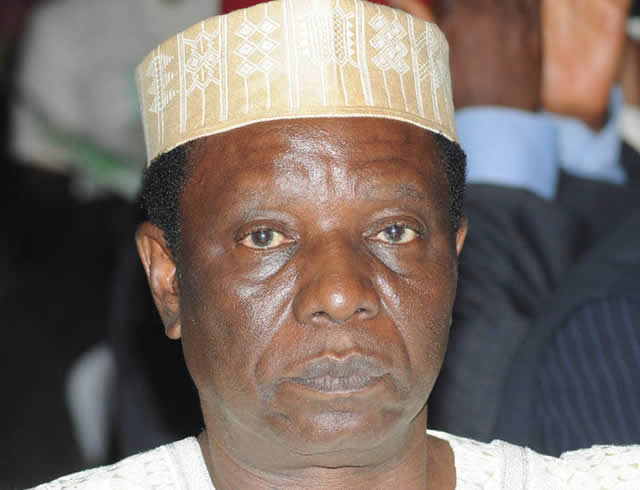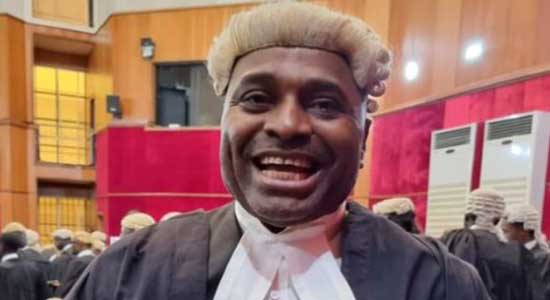Sacking Defecting Governors Deserves Supreme Court’s Support

On March 08, 2022, a federal High Court sitting in Abuja sacked the governor of Ebonyi state and his deputy as well as a number of state legislators for defecting from the party on whose platform they were elected.
Reactions to the judgment have been overwhelming. While most people found no fault with removing the law makers from office because it tallies with the express provisions of the Constitution, opinions are divided as to the legality of the judgment concerning the governor and his deputy whose defection the same Constitution is silent on.
In 2018, when the governors of Benue, Sokoto and Kwara states similarly defected, what carried the day was the argument that the Constitution did not include defection among the factors for which governors can leave office.
The implication of this is that how to handle a defecting governor will for some time to come remain an unresolved issue in Nigeria’s democracy. But bearing in mind that the occurrence is patently repugnant, one would have thought that steps would have since been taken to resolve the issue, but that has not happened.
A critical objective of this piece is to draw attention to the need to punish the wrong of defection by those who appear to be inadvertently protected by the law when they are in the wrong.
Perhaps an appropriate take off point is to establish that political defection is a wrong which is not a difficult task to handle because as stated earlier, there is a consensus that it is a wrong on the part of law makers. But is it not curious to describe the act of transferring votes by some actors from one political party to another as a wrong and pretend that the same act is probably not a wrong when perpetuated by another set of actors?
Luckily, most people deprecate the act of political defection which short-changes a particular set of voters irrespective of who the wrong-doers are. Unfortunately, whereas the law prescribes punishment for law makers involved in the act, it does not similarly do so for governors.
But considering that the failure to punish a wrong does not cure the wrong of its defects, the best way to go seems to be to seek to punish every wrong doer on the basis that under the rule of law, everyone is supposedly equal before the law.
Against this backdrop, there are several issues calling for attention. The first of such issues is ownership of votes cast in a Nigerian election; is it the property of a candidate or his/her political party or both?
The Constitution has left no one in doubt that political parties are the most important actors in the nation’s electoral process. To start with, the Constitution provides that only aspirants sponsored by political parties can be candidates in an election.
Put differently, no one can dispense with political parties which is why it is impossible to be an independent candidate in any Nigerian election. Besides, the Judiciary has consistently held that votes at an election belong to political parties notwithstanding that the charisma of individual candidates may have helped a party to secure victory.
In recent contests (Imo North Senatorial and local elections in Abaji-FCT) INEC declared specific political parties as winners pending the determination of their authentic candidates.
The second issue of importance is the power to transfer votes from one party/candidate to another. Here, it is obvious that in view of the strategic position of political parties as owners of votes cast in elections, a candidate who has been declared winner of an election cannot later transfer his votes to another party/candidate.
Anyone who does so, is involved in the wrong of defection which can hurt the interests of some persons or groups. Based on this reasoning, the logical necessary follow-up question would take this form. Is it in order for the relevant societal institution – the Judiciary to overlook the wrong of such transfer of votes which a defection of an elected office-holder may have caused? If not, how best can the subject be handled?
For long, very many senior lawyers have continued to argue that removing a defecting governor from office is unconstitutional. However, they have all been silent on the propriety of leaving a wrong without a remedy.
Here, it is apt to recall the Latin maxim ‘ubi jus ibi remedium’ which is an age-long philosophy meaning “for every wrong the law provides a remedy.” It is therefore not enough to lament the failure of the Nigerian Constitution to provide a remedy for the wrong of political defection by a governor because it is not only a Constitution that has the duty to provide every remedy; in what is known as judge-made law, a Court can also interpretatively prescribe a remedy to a wrong.
Surprisingly, no effort has been made in recent years to follow the clear path identified by the greatest Nigerian judges of all times on what the nation should do when confronted by the issue of lack of provisions for an inevitable cause of action. In other words, Nigerian courts ought to inventively dispense substantive justice instead of allowing a wrong to persist without sanctions because of over-reliance on technicalities.
As Karibi-Whyte a one-time famous justice of Nigeria’s Supreme Court once explained, “… it is erroneous to assume that the maxim ubi jus ibi remedium is only an English Common Law principle. It is a principle of justice of universal validity couched in Latin and available to all legal systems involved in the impartial administration of justice.
It enjoins the courts to provide a remedy whenever the Plaintiff has established a right…” Although some analysts have criticised the decision of the Supreme Court in the famous Rotimi Amaechi’s case, it is quite hard to disagree with the proactive posture of the Justices that if a court is satisfied that a person has suffered a legal injury it ought to do justice by providing “a remedy irrespective of the fact that no remedy is provided either at common law or by statute.”
Indeed, a court needs to do this so as to be able to follow the persuasive dictum of another legal luminary: Justice Katsina-Alu who opined that “the law is an equal dispenser of justice which leaves no one without a remedy for his right.”
With this clear line of thought provided by judges of old, no one can defend the current conservative approach which gives an impression that the judiciary in Nigeria has been subdued by the other arms of government.
The situation is more worrisome because defecting governors have never proffered any rational motivation for their behaviour other than personal materialistic interests. For example, Governor Ben Ayade of Cross River State defected because he reportedly wanted to support the President to provide good governance.
Dave Umahi of Ebonyi State on his part defected to the ruling party because he doubted if his original party would zone the presidency to the South East. In the case of Zamfara State, Governor Bello Matawalle defected to a political party which the judiciary ruled was not in existence in the eyes of the law.
These bizarre defections ought not to be protected through judicial over-reliance on technicalities which can encourage other actors into seeking extra-judicial means of ventilating political grievances.
As if to reiterate the definition of law by the legendary English jurist, Lord Denning which sees law as what the Judge says it is, Justice Inyang Ekwo has taken the first crucial step in bringing to an end, the notorious wrong of Nigeria’s political defections.
All Higher Courts should support him by disallowing the perpetrators from using the protection offered them by the Constitution to hide behind fraudulent activities. Any defector-governor should not be seen as someone removed from office; but one who worked away from a mandate. He should thus not be allowed to transfer the same mandate elsewhere because its owners – the electorate had instinctively determined where the mandate should be.
Note: This article was originally published by The Vanguard on 13/03/2022





